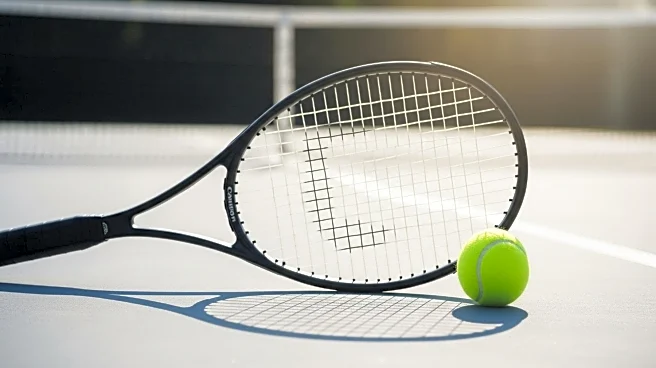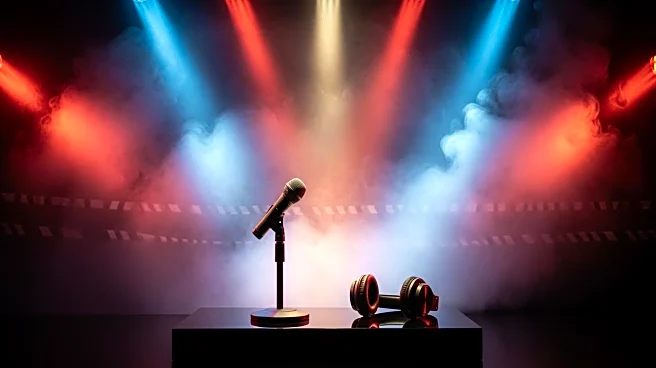What's Happening?
Taylor Townsend has reached the fourth round of the US Open in singles, marking only the second time in her career she has achieved this feat. Townsend secured a victory against Mirra Andreeva, winning 7-5, 6-2, and is set to face former Wimbledon champion Barbora Krejcikova in the next round. This achievement follows a contentious incident with Jelena Ostapenko during the second round, where Ostapenko criticized Townsend for not apologizing after winning a point via a net cord. Despite the altercation, Townsend has maintained focus on her performance, stating that external drama does not affect her goals on the court.
Why It's Important?
Townsend's advancement in the US Open is significant as it highlights her resilience and ability to perform under pressure, especially following the publicized dispute with Ostapenko. Her success in the tournament could bolster her career, providing her with greater visibility and potential sponsorship opportunities. The incident with Ostapenko has sparked discussions within the tennis community, with many players supporting Townsend, which may influence public perception and her standing in the sport. Additionally, her performance could inspire other athletes to remain focused despite external distractions.
What's Next?
Townsend will compete against Barbora Krejcikova in the fourth round, aiming to reach the quarterfinals of a Grand Slam for the first time. Her ability to maintain composure and focus will be crucial as she faces a former Grand Slam champion. The outcome of this match could further elevate her status in professional tennis. Meanwhile, the tennis community may continue to discuss the implications of the Ostapenko incident, potentially affecting Townsend's interactions with other players and media coverage.
Beyond the Headlines
The incident with Ostapenko raises questions about sportsmanship and the pressures athletes face in high-stakes competitions. Townsend's approach to handling criticism and maintaining focus could serve as a model for other athletes dealing with similar situations. The role of social media in amplifying such incidents also highlights the need for athletes to manage their public personas carefully.









